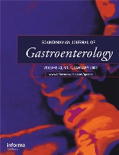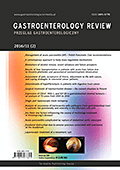
Turkish Journal of Gastroenterology
Scope & Guideline
Pioneering Research for Digestive Wellness
Introduction
Aims and Scopes
- Clinical Research in Gastroenterology:
The journal publishes studies that explore clinical aspects of gastrointestinal diseases, focusing on patient management, treatment efficacy, and disease outcomes. - Molecular and Cellular Mechanisms:
Research addressing the molecular pathways involved in gastrointestinal diseases, including cancer and metabolic disorders, is a significant focus, highlighting the cellular responses and signaling mechanisms. - Endoscopic Techniques and Innovations:
The journal emphasizes advancements in endoscopic techniques, including novel diagnostic and therapeutic approaches, as well as the evaluation of endoscopic procedures in various gastrointestinal conditions. - Epidemiological Studies and Public Health:
Public health perspectives, including epidemiological research on gastrointestinal disorders, are integral to the journal, addressing prevalence, risk factors, and health outcomes across populations. - Nutritional and Metabolic Aspects:
Studies that investigate the role of nutrition and metabolism in gastrointestinal diseases, including non-alcoholic fatty liver disease and celiac disease, are prevalent in the journal's publications.
Trending and Emerging
- Precision Medicine in Gastroenterology:
There is a growing focus on precision medicine approaches, including personalized treatment strategies based on genetic and molecular profiling of gastrointestinal diseases, particularly in cancer treatment. - Impact of Gut Microbiota on Health:
Research exploring the role of gut microbiota in gastrointestinal health and disease has surged, emphasizing its influence on conditions such as irritable bowel syndrome and inflammatory bowel diseases. - Integration of Digital Health Technologies:
The incorporation of digital health technologies, including telemedicine and mobile health applications, in the management of gastrointestinal disorders is increasingly prevalent, aiming to improve patient outcomes. - Research on Gut-Brain Axis:
Emerging studies investigating the gut-brain axis and its implications for gastrointestinal disorders and mental health are becoming more prominent, highlighting the interconnectedness of physiological and psychological health. - Non-invasive Biomarkers for Disease Monitoring:
The development and validation of non-invasive biomarkers for monitoring gastrointestinal diseases, especially in liver and colorectal conditions, are gaining traction, reflecting a shift towards more patient-friendly diagnostic approaches.
Declining or Waning
- Traditional Surgical Approaches:
There has been a noticeable decline in studies focusing on traditional surgical methods for gastrointestinal diseases, as the field increasingly shifts towards minimally invasive techniques and endoscopic interventions. - Basic Science Studies Without Clinical Relevance:
Research that lacks direct clinical application or relevance has diminished, with a greater emphasis now placed on translational studies that bridge laboratory findings with clinical practice. - Invasive Diagnostic Procedures:
The frequency of published studies on invasive diagnostic procedures, such as exploratory surgeries for gastrointestinal conditions, has decreased, reflecting a trend towards non-invasive diagnostic modalities.
Similar Journals

SCANDINAVIAN JOURNAL OF GASTROENTEROLOGY
Illuminating the Complexities of Gastrointestinal DiseasesSCANDINAVIAN JOURNAL OF GASTROENTEROLOGY, published by Taylor & Francis Ltd, is a leading journal in the field of gastroenterology, dedicated to advancing clinical and experimental research related to digestive health. With an ISSN of 0036-5521 and an E-ISSN of 1502-7708, this journal provides a platform for high-quality research that addresses the complexities of gastrointestinal diseases. Since its inception in 1966, the journal has consistently contributed valuable insights and is currently categorized in the Q2 quartile of gastroenterology journals, reflecting its impact and relevance in the field, with a Scopus rank of 87 out of 167 in Medicine - Gastroenterology. Researchers and practitioners are encouraged to explore the journal's archives to enhance their understanding and stay abreast of innovative strategies for managing gastrointestinal disorders. The SCANDINAVIAN JOURNAL OF GASTROENTEROLOGY remains a crucial resource for those committed to improving patient outcomes through rigorous scientific inquiry and the sharing of impactful findings.

PRACTICAL GASTROENTEROLOGY
Advancing Gastrointestinal Insights for PractitionersPRACTICAL GASTROENTEROLOGY is a distinguished journal dedicated to the field of gastroenterology, published by Shugar Publishing Inc in the United States. With an ISSN of 0277-4208, the journal serves as a pivotal resource for medical professionals, researchers, and students keen on staying abreast of the latest advancements and practical applications in gastrointestinal health. Although it does not currently operate under an Open Access model, it has been a respected publication since its inception, spanning significant years of research from 1989 to 2013 and resuming again from 2016 to 2023. Despite holding a current Q4 ranking in Gastroenterology with Scopus, its commitment to quality insights provides a platform for critical information dissemination, making it an essential read for those engaged in clinical practice and academic research. The journal’s objectives include addressing practical challenges in gastroenterology, bridging the gap between research and clinical implementation, and fostering ongoing education among practitioners in this dynamic field.

BMJ Open Gastroenterology
Advancing Gastroenterology Through Open Access ResearchBMJ Open Gastroenterology is a premier open access journal published by the esteemed BMJ Publishing Group, focusing on the dynamic and evolving field of gastroenterology. Established in 2014, the journal has rapidly ascended in stature, reflected in its impressive 2023 Q1 ranking in gastroenterology and its position within the top 25% of journals in the category according to Scopus. With a mission to disseminate high-quality, peer-reviewed research with global significance, the journal provides a vital platform for researchers, professionals, and students alike to share their findings and advancements in gastrointestinal medicine. Operating from its headquarters in London, England, the journal's open access format ensures wide visibility and accessibility of cutting-edge research, making it an invaluable resource for those dedicated to improving patient care and driving innovation in gastroenterological sciences. By engaging with this journal, contributors and readers can stay at the forefront of critical developments in the field, fostering a collaborative environment for knowledge exchange.

Gut and Liver
Connecting science and practice in digestive health.Gut and Liver is a prestigious peer-reviewed journal dedicated to advancing the fields of Gastroenterology and Hepatology. Published by the EDITORIAL OFFICE GUT & LIVER in South Korea, this Open Access journal has been disseminating valuable research findings since 2007, making critical knowledge accessible to a global audience. With an impressive 2023 impact factor that places it in Q1 rank in both Gastroenterology (#28/167) and Hepatology (#22/82), it is recognized as a leader in the medical domain. The journal covers diverse topics, including innovative therapeutic strategies, clinical practices, and groundbreaking research in liver diseases and gastrointestinal disorders, thereby playing a vital role in improving patient care and outcomes. Researchers, healthcare professionals, and students can benefit from the journal's wealth of information, designed to foster collaboration and spark new ideas within the scientific community. For further engagement with current research, readers can access issues from 2009 to 2024 and stay updated on the latest advancements in the field.

Therapeutic Advances in Gastrointestinal Endoscopy
Advancing the Frontiers of Gastrointestinal CareTherapeutic Advances in Gastrointestinal Endoscopy, published by SAGE Publications Ltd in the United Kingdom, is a cutting-edge Open Access journal dedicated to the field of gastroenterology and advancing the practice of endoscopy through rigorous research and clinical innovation. Since its establishment in 2019, the journal has become an invaluable resource for researchers, clinicians, and students, providing a platform for the dissemination of high-quality studies and novel therapeutic techniques. With an impressive Q2 ranking in the Gastroenterology category and a current Scopus rank of #63/167, it reflects the journal's commitment to fostering academic excellence and impactful research. The journal aims to enrich the field by sharing significant findings that improve patient outcomes and advance the knowledge of gastrointestinal procedures. The adoption of an Open Access model ensures that research is accessible to a global audience, thereby facilitating knowledge exchange and collaboration within the gastroenterology community.

JOURNAL OF GASTROENTEROLOGY
Elevating the understanding of gastrointestinal diseases.JOURNAL OF GASTROENTEROLOGY, published by SPRINGER JAPAN KK, is a premier academic journal that has been at the forefront of gastrointestinal research since its inception in 1994. With an impressive Impact Factor and ranking in the top quartile (Q1) of its category, this journal holds a significant place in the field of gastroenterology, currently ranked 12th out of 167 in Scopus, placing it in the 93rd percentile. The journal serves as an essential platform for disseminating innovative research, clinical studies, and reviews that foster advancements in the understanding and treatment of gastrointestinal diseases. Although it does not offer Open Access options, it provides researchers, clinicians, and students access to crucial insights and breakthroughs pivotal to improving patient care and outcomes in gastroenterology. With a commitment to high-quality peer-reviewed content, JOURNAL OF GASTROENTEROLOGY plays a vital role in shaping the future of gastrointestinal health and research.

Korean Journal of Gastroenterology
Pioneering Research for Better Gastrointestinal CareKorean Journal of Gastroenterology (ISSN: 1598-9992, E-ISSN: 2233-6869), published by the Korean Society of Gastroenterology, has been a premier outlet for research and advancements in the field of gastroenterology since its inception in 1968. This open-access journal, based in South Korea, fosters a global dialogue on gastrointestinal health, embracing contributions from a diverse array of disciplines within medicine. It is currently ranked in the Q4 quartile for miscellaneous medicine and holds a Scopus rank of #323 out of 636 in general medicine, reflecting its commitment to publishing impactful research despite its relatively recent establishment in high-impact metrics. With a continuous publication timeline extending through to 2024, the journal aims to enhance understanding of gastrointestinal disorders and promote innovative treatments, making it an essential resource for researchers, clinicians, and students alike who seek to stay abreast of the latest developments and clinical applications in gastroenterology.

Translational Gastroenterology and Hepatology
Advancing Patient Outcomes through Translational Research.Translational Gastroenterology and Hepatology, published by AME Publishing Company, stands as a pivotal platform for advancing the understanding and treatment of gastrointestinal and liver diseases. With its focus on translational research, this journal aims to bridge the gap between laboratory discoveries and clinical applications, thus fostering improvements in patient care. Although specific metrics like H-Index and Scopus ranks are currently unavailable, the journal is committed to maintaining high standards of scholarly communication and excellence. As an open-access publication, it ensures that valuable findings are readily accessible to a global audience, promoting collaboration and innovation among researchers, clinicians, and healthcare professionals invested in gastroenterology and hepatology. The journal's dedication to disseminating groundbreaking research makes it an essential resource for those seeking to stay at the forefront of these ever-evolving fields.

Gastroenterology Review-Przeglad Gastroenterologiczny
Pioneering Insights in Gastrointestinal MedicineGastroenterology Review-Przeglad Gastroenterologiczny is a premier, peer-reviewed journal published by TERMEDIA PUBLISHING HOUSE LTD, focusing on the dynamic field of gastroenterology. Since its inception in 2006, it has embraced an Open Access model, ensuring that the latest research is readily accessible to a global audience, fostering collaboration and innovation. Based in Poland, this journal serves as a crucial platform for disseminating significant findings in gastrointestinal research, with a current Scopus rank placing it at the 39th percentile in its category. With a commitment to advancing the understanding of gastroenterological conditions, *Gastroenterology Review* publishes original articles, reviews, and case studies that contribute to both clinical practice and academic research. The journal is particularly aimed at researchers, healthcare professionals, and students who ignite dialogues that shape the future of gastrointestinal health. Explore the comprehensive insights that this journal offers, as it encapsulates vital developments from 2008 to 2024 in the ever-evolving landscape of gastroenterology.

GE Portuguese Journal of Gastroenterology
Bridging Research and Practice in Gastrointestinal HealthThe GE Portuguese Journal of Gastroenterology, published by KARGER, is a prominent platform in the field of gastroenterology, providing a vital forum for the dissemination of high-quality research since its establishment. With an open access model implemented in 2012, the journal ensures that emerging findings in gastrointestinal health are readily accessible to a global audience, facilitating the exchange of critical knowledge among researchers, practitioners, and students alike. Based in Switzerland, this journal has earned a respected position within the academic community, currently holding a Q3 ranking in the gastroenterology category for 2023, alongside a Scopus rank of #113 out of 167 in its field. Spanning converged years from 2014 to 2024, the GE Portuguese Journal of Gastroenterology aims to bridge gaps in research and practice, fostering collaboration and innovation across diverse areas within the discipline. Authors and readers alike benefit from the journal's commitment to advancing knowledge and practice in gastroenterology.